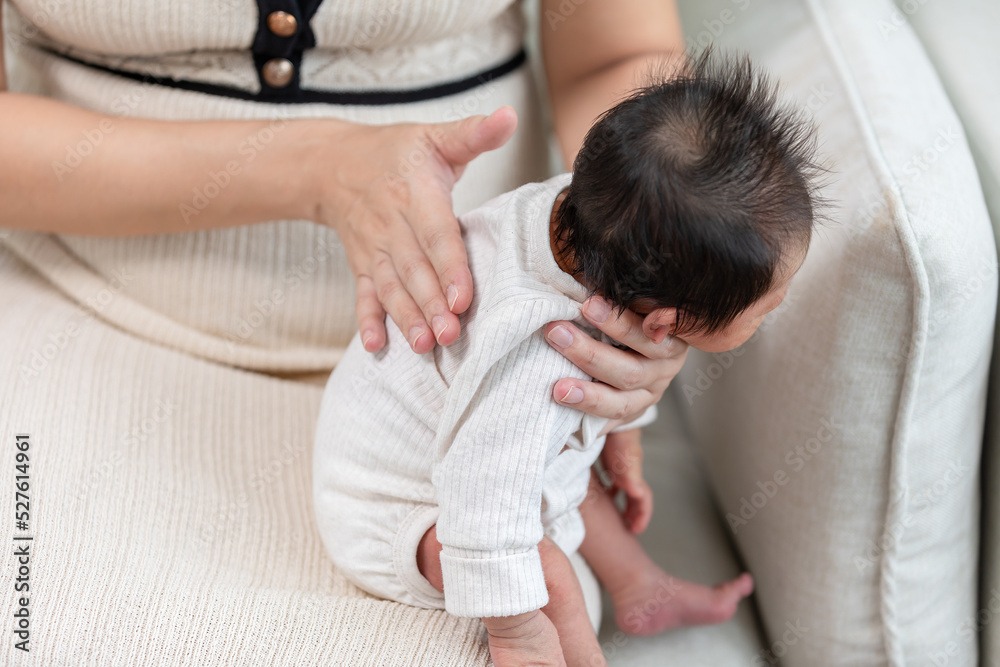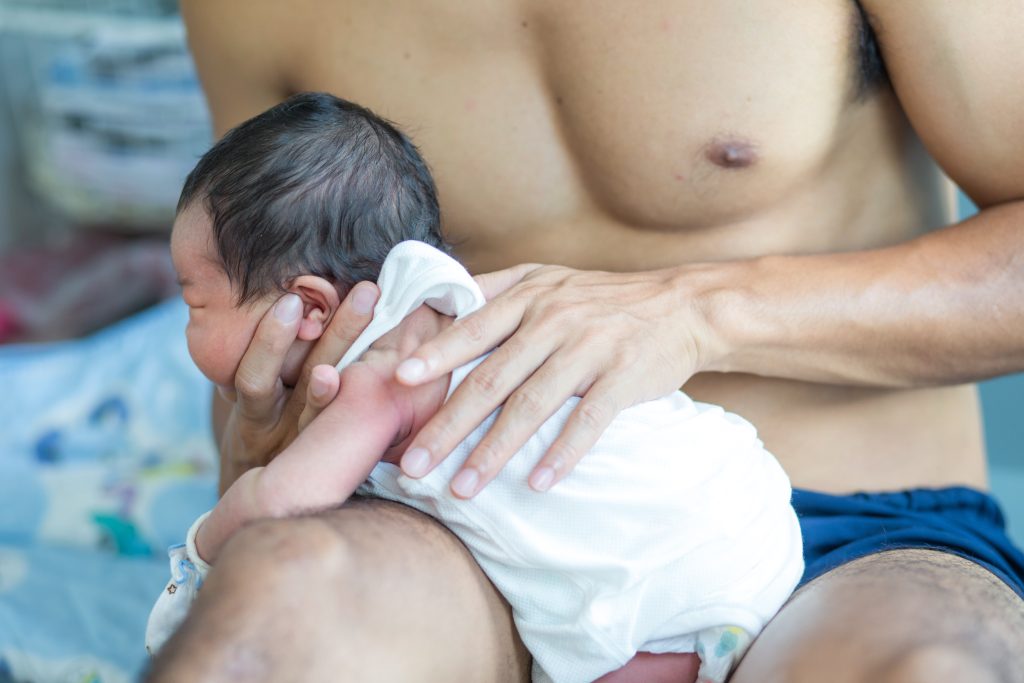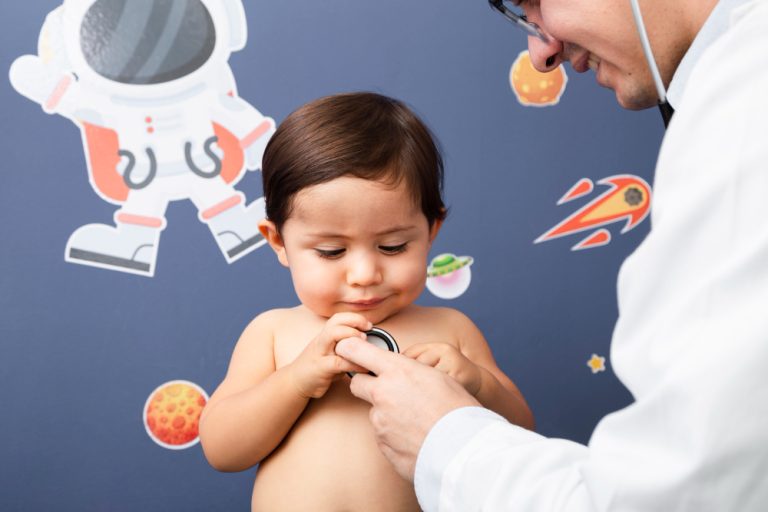When Do Babies Not Need To Be Burped: Baby Burping Routine
Do you find yourself trapped in the never-ending cycle of burping your little one after every feeding? Are you wondering when do babies not need to be burped anymore? As your baby blossoms and matures, the burping phase is a natural progression that parents eagerly anticipate.
But when exactly can you bid farewell to these burping sessions without compromising your baby’s comfort and well-being?
In our comprehensive guide, we delve into the intricacies of when babies commonly outgrow the need to be burped, offering insights, expert advice, and practical tips for navigating this transition seamlessly. Say goodbye to those midnight burping marathons and welcome a newfound freedom as your baby reaches this significant developmental milestone.
Throughout this article, “When Do Babies Not Need To Be Burped,” we’ll explore the telltale signs that indicate your baby may no longer require burping, address common concerns related to nighttime feedings and reflux, and provide you with a roadmap for gracefully phasing out this age-old tradition. Get ready to wave goodbye to burping woes and usher in a new chapter of parenting bliss.
Introduction to Burping Babies

Babies have fragile digestive systems that can often result in swallowing air during feedings. This can lead to discomfort, gas, and even spit-ups. To alleviate these issues, parents are often advised to burp their babies after each feeding. Burping helps release any trapped air in the baby’s stomach, promoting better digestion and reducing discomfort.
But when is it safe to stop burping babies? Many parents wonder when do babies not need to be burped anymore after feedings. It is essential to understand the signs indicating that a baby has outgrown the need for burping to avoid unnecessary disruptions in their routine.
Knowing when to stop burping babies is important for several reasons.
- First, it helps parents assess the baby’s ability to self-regulate their digestion and prevent overfeeding.
- Second, it allows parents to gradually transition away from the burping routine, saving time and effort during feedings.
- Lastly, it helps create a comfortable and efficient feeding experience for both the baby and the parent.
In the following sections, we will explore the signs that indicate a baby no longer needs to be burped, as well as provide tips for transitioning away from the burping routine as your baby grows. We will also address specific scenarios, such as nighttime feedings and babies with reflux, to ensure you can navigate these situations effectively.
Remember, understanding when do babies not need to be burped anymore is crucial for their overall comfort and well-being.
So let’s dive in and explore the signs and strategies to guide you in this exciting phase of your baby’s development.
Signs That Indicate Baby Doesn’t Need Burping Anymore

As your baby grows and develops, there comes a time when they no longer require burping after feedings. While every baby is different, there are certain signs that indicate they have outgrown the need for burping.
Here are some common signs to look out for:
1. Decreased fussiness
If your baby seems content and happy after feedings without any signs of discomfort or excessive crying, it may be a sign that they no longer need to be burped.
2. Improved digestion
As babies mature, their digestive systems become more efficient at processing milk or formula. If your baby experiences fewer episodes of gas or bloating and has regular bowel movements without any signs of discomfort, it could mean that burping is no longer necessary.
3. Self-soothing
Babies who can self-soothe and settle themselves to sleep without assistance may no longer require burping. This indicates that their digestive system is functioning well, and they are able to handle the food without the need for burping.
4. Extended periods of feeding
If your baby starts feeding for longer periods without needing breaks for burping, it suggests that they have developed the ability to swallow air more efficiently or have learned to regulate their feeding pace.
5. Consistent weight gain
A steady weight gain is an excellent indicator that your baby’s feeding habits are on track. If your baby is consistently gaining weight and reaching their growth milestones, it is likely that they have outgrown the need for burping.
It’s important to note that these signs may vary from baby to baby, and it’s always best to consult with your pediatrician before completely eliminating the burping routine.
While these signs suggest that burping may no longer be necessary, it’s essential to consider your baby’s individual needs and any specific feeding issues.
Transitioning Away from Burping Routine

As babies grow and develop, their digestive systems become more efficient, reducing the need for burping after feedings. Transitioning away from the burping routine can be a gradual process that allows both parent and baby to adjust.
Here are some tips and guidance to help you navigate this transition smoothly:
Pay attention to your baby’s cues
- Observing your baby’s behavior during and after feedings can give you valuable insight into whether they still need to be burped.
- Look for signs of contentment, such as relaxed body language, slowed feeding pace, and fewer episodes of fussiness or gassiness.
- These indicators suggest that your baby may no longer require burping.
Gradually reduce the frequency
- Instead of abruptly stopping the burping routine, slowly decrease the number of times you burp your baby after each feeding.
- Start by skipping one burping session and monitor how your baby responds.
- If your baby remains comfortable and doesn’t exhibit any signs of discomfort or excessive gas, you can gradually decrease the frequency of burping further.
Try different feeding positions
- Experiment with different feeding positions to see if they contribute to reducing the need for burping.
- Some positions, such as upright breastfeeding or paced bottle feeding, can help minimize air intake during feedings, reducing the amount of trapped gas in your baby’s stomach.
Encourage self-burping
- As your baby grows, they may develop the ability to burp on their own.
- Encourage self-burping by gently patting their back or providing gentle pressure on their tummy after feedings.
- This can help stimulate any trapped gas to be released naturally.
Monitor for any discomfort or regurgitation
- While transitioning away from the burping routine, monitor your baby closely for signs of discomfort or regurgitation.
- If you notice increased fussiness or frequent spit-up episodes, consider reintroducing burping into your routine as needed.
Remember, every baby is unique, and the transition away from the burping routine may happen at different ages and stages of development. Trust your instincts as a parent and consult with your pediatrician if you have any concerns or questions.
Transitioning away from the burping routine is a natural progression as your baby grows and develops.
You can navigate this transition effectively by paying attention to your baby’s cues, gradually reducing the frequency of burping, trying different feeding positions, encouraging self-burping, and monitoring for any discomfort or regurgitation.
Remember to trust your instincts and seek guidance from your pediatrician when needed.
Dealing with Nighttime Feedings and Burping

Nighttime feedings can be particularly challenging for parents, especially when it comes to burping the baby afterward. Here are some strategies and tips to help you navigate this situation and ensure a comfortable and peaceful night for both you and your little one.
1. Keep the lights dim and the atmosphere calm
- During nighttime feedings, it’s important to create a soothing environment that signals it’s time for sleep.
- Keep the lights dim or use a night light to minimize stimulation.
- Softly humming or playing gentle lullabies can also help create a calming atmosphere.
2. Use a burp cloth and position strategically
Make sure to have a burp cloth handy to catch any spit-up or drool during the burping process. When positioning your baby, consider using the same burping positions that have been effective during daytime feedings.
Some popular positions include:
- Over the shoulder: Gently place your baby’s chest against your shoulder while supporting their head.
- Sitting on your lap: Sit your baby upright on your lap, providing support to their chin and chest with one hand.
3. Try different burping techniques
- If the usual burping techniques don’t seem to work during nighttime feedings, explore different options.
- You can try gentle bounce movements while holding your baby in an upright position or provide some extra support by patting their back slightly firmer.
- Experimenting with various techniques may help in triggering a burp.
4. Allow some time before laying the baby down
- After burping, give your baby a few minutes to settle down before laying them back in their crib or bassinet.
- This can help prevent any discomfort or reflux that may occur when lying down immediately after a feeding.
5. Consider keeping the baby slightly elevated
- If your baby is prone to reflux or experiences discomfort after feedings, you may want to consider keeping them slightly elevated while they sleep.
- This can be achieved by using a reflux wedge or placing a pillow under the mattress to create a gentle incline.
- However, it’s important to consult with your pediatrician before making any changes to your baby’s sleep environment.
Remember, every baby is different, and what works for one may not work for another. It’s essential to pay attention to your baby’s cues and adapt your approach accordingly. With patience and persistence, you’ll find the right strategies to handle nighttime feedings and burping effectively.
“Experiment with different burping techniques and find the one that works best for your baby. Every little one is unique, so don’t be afraid to try new positions and movements.” Taking Cara Babies Community
Managing Reflux and Burping

Babies with reflux often require special attention when it comes to burping. Reflux occurs when stomach acid flows back into the esophagus, causing discomfort and sometimes spit-up.
If your baby has been diagnosed with reflux by a healthcare professional, here are some tips for managing reflux and burping effectively:
Burping Techniques for Babies with Reflux
1. Keep the Baby Upright
After feeding, hold your baby in an upright position for about 30 minutes to allow gravity to help keep the stomach contents down.
2. Gentle Patting
Gently pat your baby’s back, using a firm but gentle motion. Avoid patting too vigorously, as this may increase discomfort.
3. Optimal Burping Position
Try different burping positions to find the most comfortable one for your baby. A reclined position, with your baby’s head slightly elevated, can help reduce the likelihood of acid reflux.
4. Soft Belly Massage
After feeding, massage your baby’s belly in a clockwise circular motion. This can help ease any digestive discomfort caused by reflux.
Signs it’s Safe to Stop Burping a Baby with Reflux

Every baby is different, but there are signs that indicate your baby may have outgrown the need for burping, even with reflux. Look out for these signs before considering stopping the burping routine:
- Your baby is no longer showing signs of discomfort or spit-up after feedings.
- Your baby can comfortably sleep without being burped and does not experience any issues during sleep.
- Your baby’s healthcare provider confirms that the reflux has improved and no longer requires frequent burping.
Keep in mind that it’s important to follow the guidance of your healthcare provider when determining if it’s safe to stop burping your baby with reflux.
Important Considerations
If you suspect that your baby’s reflux is causing significant discomfort or having a negative impact on their growth and development, consult a healthcare professional for further evaluation and guidance. They can provide individualized recommendations based on your baby’s specific needs.
Remember, managing reflux and burping is not a one-size-fits-all approach. Finding the best techniques that work for your baby may require some trial and error. Be patient and seek professional medical advice for any concerns or questions you may have.
By following these tips and working closely with your healthcare provider, you can effectively manage reflux and burping in babies, ensuring their comfort and well-being.
The Final Note: When Do Babies Not Need To Be Burped
In conclusion, understanding the ins and outs of burping babies can help parents provide the best care for their little ones. While it’s important to make sure babies are burped regularly, there may come a time when parents wonder, “when do babies not need to be burped?”
It’s important to note that every baby is different, and what works for one may not work for another. However, as long as parents pay attention to their baby’s comfort level and seek alternative positions if necessary, they can rest assured that they’re doing their best to keep their baby happy and healthy.
Remember to trust your instincts and consult with a healthcare professional if you have concerns about your baby’s digestion or overall well-being.







